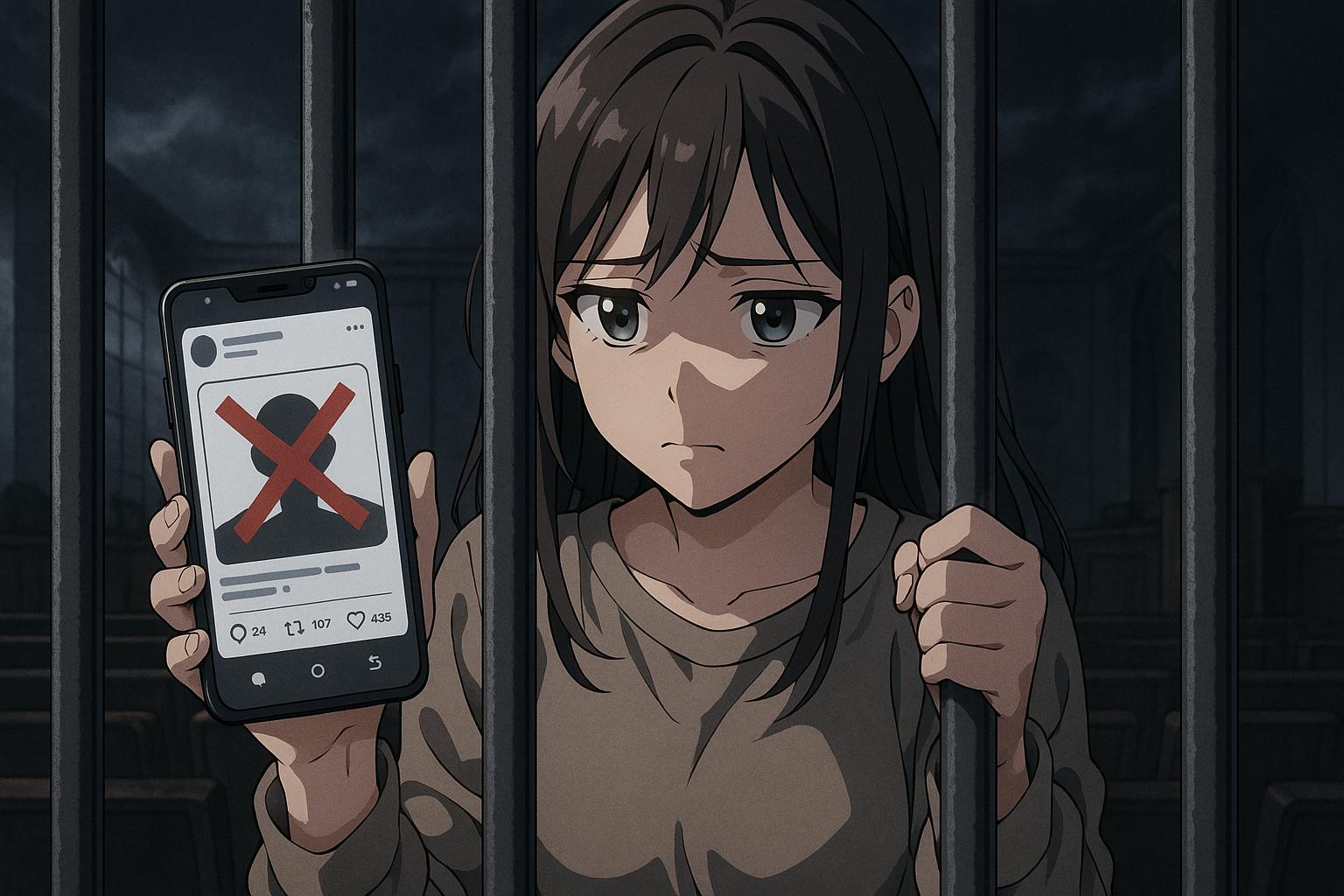The case of Lucy Connolly serves as a stark illustration of the complexities and contradictions within the UK's judicial system. This former childminder and wife of a Conservative councillor has been sentenced to 31 months in prison for inciting racial hatred through a social media post. The disparaging comment, made in the wake of the tragic murder of three children in Southport, has stirred public outrage and ignited a broader debate about the implications of free speech and the effectiveness of punitive justice in contemporary Britain.
Connolly’s post, which called for “mass deportation” and the burning of hotels housing asylum seekers, was not a casual remark but a direct incitement to violence. Authorities have made it clear that her message, which garnered over 310,000 views, was anchored in misinformation regarding the perpetrator of the Southport stabbings. In a society already grappling with rising tensions surrounding immigration and public safety, her words were deemed both dangerous and illegal. The Crown Prosecution Service noted that this case was emblematic of a troubling trend where inflammatory online speech could lead to real-world consequences, putting lives at risk.
The sentencing has sparked significant discourse regarding proportionality in justice. Critics argue that while Connolly's remarks were undeniably offensive, her incarceration highlights a troubling inconsistency in how the judicial system treats similar cases. For instance, it prompted reflections on prior incidents where individuals stirred unrest via social media during riots but received lenient sentences. A pattern has emerged in British courts, particularly after events like the 2011 riots, where those who incite violence online face severe repercussions, often seen as a means of performing justice in the public eye.
This case also raises questions about public perception and the phenomenon of scapegoating in justice. Connolly’s barristers indicated that she faced immense pressure to plead guilty, given the backlog in the court system and her personal responsibilities at home. The decision to deny her bail and temporary release privileges, a standard for offenders with no previous criminal records, suggests that her case has been influenced by media scrutiny rather than objective legal assessment. This aligns with broader concerns regarding how punitive measures are often employed as deterrents rather than for genuine rehabilitation or justice.
Further complicating the narrative is the context of societal attitudes toward crime and justice in Britain. While Connolly was incarcerated for her inflammatory comments, many high-profile figures, including members of the government, have faced significantly lesser consequences for serious offences. This disparity has amplified public frustration, particularly when perceived as a reflection of an unjust system prioritising performance over actual justice. As Boris Johnson remarked on the handling of this case, questioning whether such a harsh sentence was warranted underscores a growing sentiment among the public that the system may be more concerned with setting an example than with the principles of justice.
In conclusion, Lucy Connolly's case is a microcosm of the broader dilemmas facing the British justice system today. It highlights not only the tensions between free speech and public safety but also the inconsistencies in sentencing for speech-related offences. As society grapples with the implications of online hate speech and the legal framework surrounding it, it becomes imperative to question whether a system that admonishes certain individuals while seemingly excusing others truly serves justice.
Reference Map
- Paragraphs 1, 2, 3, 4, 5
- Paragraphs 2, 4
- Paragraphs 2, 3
- Paragraph 2
- Paragraph 2
- Paragraphs 3, 5
Source: Noah Wire Services
